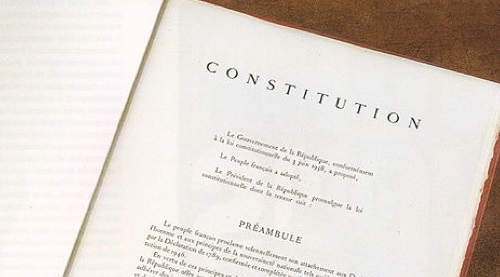What is emphatically presented as a constitutional reform is at best a minor reform (and at worst a non-event).
Reducing the number of parliamentarians by 30% doesn’t cost much, but it must be said that it is purely demagogic. Halving the Economic and Social Council is a half-measure: it should be completely eliminated, which would save far more than the 30% reduction in parliamentarians.
The 15% proportional representation will change nothing except to allow the major parties to elect their most unpopular apparatchiks. The term limits are somewhat of a joke because we can trust our dignitaries (especially in the 06 department) to simply jump from one mandate to another.
As for the mention of Corsican specificity, it is purely token and will be universally opposed. Too much for the Jacobin Republicans, not enough for the Corsican Nationalists.
So in summary, much ado about nothing.
Nonetheless, the Fifth Republic, which organizes the greatest concentration of power in the Western world in the hands of one man (and paralysis at the top of the state in case of cohabitation), would indeed need a substantial reform. But here we face the French paradox: this reform (the mythical and improbable Sixth Republic…) involves a drastic reduction in the President’s powers. But the only one who can initiate this revision is… the President. You might as well ask him to clip his own wings. Therefore, at the start of every five-year term, France reenacts the skit of the minor constitutional reform.
That said, intellectual honesty requires us to acknowledge that there was one exception to this comedy: the adoption of the Priority Preliminary Rulings on the Issue of Constitutionality in 2008 at the initiative of a certain Nicolas Sarkozy (aided by Jack Lang). These QPCs make the Constitutional Council a real counter-power. And it’s amusing to note that at the time, it was scarcely discussed in the media, and Sarkozy didn’t even highlight it during the 2012 campaign.
by Patrick Mottard


